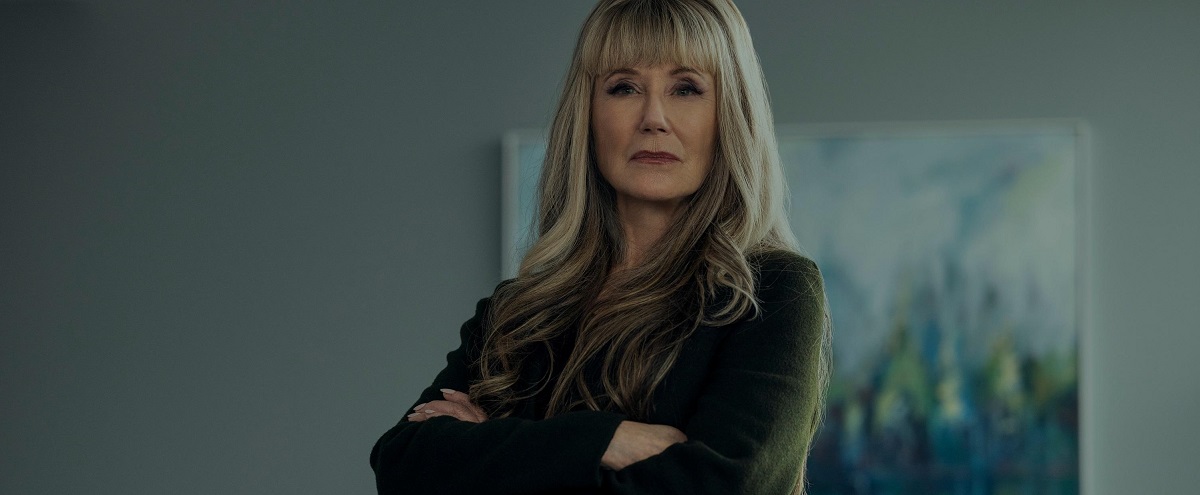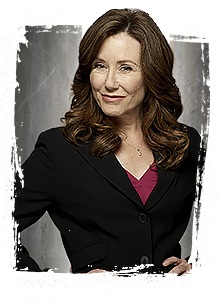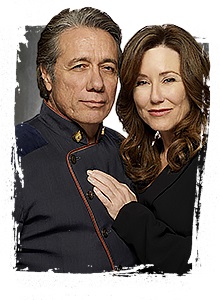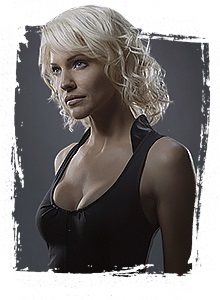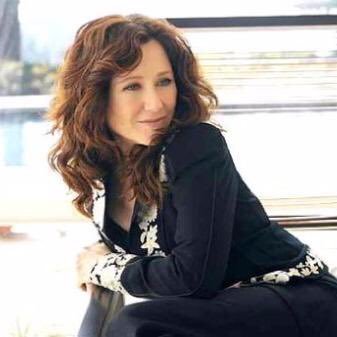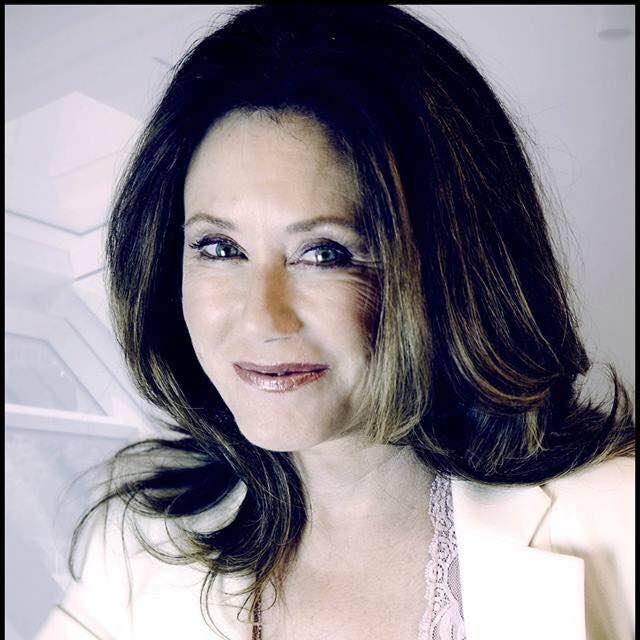
Hollywood’s Late Bloomer: Shy At First, Mary Mcdonnell Has A Blossoming Film Career
Michael J. Bandler
January 24, 1993
It’s a given in the movie industry that Hollywood’s endangered species is the actress aged 35 to 45-at least in terms of work opportunities.
But here’s Mary McDonnell, defying the odds, blossoming at 40.
Her latest movie is “Passion Fish,” which audiences and critics have applauded. The Foreign Press Association nominated her for a Golden Globe award.
The movie, which is scheduled to open Friday, homes in on the relationship between a bitter, angry one-time soap opera star, now a paraplegic as a result of a traffic accident, and the caregiver (Alfre Woodard) assigned to her case. It is McDonnell’s third film role in a year, following parts in two ensemble pieces, “Sneakers” and “Grand Canyon.”
All of her screen characters, including Stands With A Fist in “Dances with Wolves,” are compelled by circumstances to persevere. It comes naturally to her, she says.
“I perceive women as very persevering creatures,” McDonnell says. “I come from a family of women who persevere. I was not brought up with the idea of giving up. I’m very strongly aware of women’s ability-not that I don’t perceive men that way-to stick to it, to keep going back to what the issue is, to not abandoning themselves or others in tough times. So when I read a script about a woman who doesn’t do that, or doesn’t seem to have that, I say, `I don’t recognize her. Who is she? Can I play this? What’s going on here?”
By the usual measurements, McDonnell is a newcomer to mass entertainment. Her entire film output consists of six roles in nearly as many years, plus a play on public television. Before those roles, though, stretched nearly two decades on college and professional stages.
Each of her recent characters has been involved in a serendipitous development, a turn of fate that is only sometimes for the best. In “Passion Fish,” there are two events-the accident and the arrival of Chantelle, her helpmate. In “Sneakers,” her encounter with a former lover, a resurfaced ex-student radical, turns her life dramatically on end. In “Grand Canyon,” the jogger she portrays finds an abandoned infant in the bushes of a city park. And in “Dances With Wolves,” her character was not someone who originally had expected to live among the Lakota Sioux.
“Nor did she expect to fall in love with a soldier!” McDonnell adds.
McDonnell’s own life, too, seems to be marked that way. She concludes that she’s “probably drawn to that in my work because I do think that that’s the way a real life occurs. In my experience, a real life doesn’t occur through a plan, but through looking the other way and having an important thing suddenly presented-whether it’s tragic or extraordinarily wonderful. That seems to me where life starts to really be lived.”
McDonnell was born in Wilkes-Barre, Pa. When she was growing up among four sisters and a brother, her family traversed the Northeast as her father moved from job to job as a computer consultant. Finally, when he got a permanent job as comptroller with Borg-Warner, the McDonnells settled in Ithaca, N.Y.
McDonnell was filling out her course selections for her second semester as a liberal arts major at the State University of New York at Fredonia-without much direction or ambition-when her father suggested that she take a course on introduction to the theater as an elective. She did, and became fascinated with drama as literature, developed friendships with theater majors and set on a course. Midway through the spring, she auditioned for a minor part in Arthur Miller’s “The Crucible,” the first of many roles she played on the SUNY stage through college.
“Before I became an actress, my engine wasn’t running,” McDonnell says. “I was having a great life, but my brain wasn’t moving at a very fast clip. I wasn’t inspired. I did fine in school. But the process of acting forced me to connect with who I was, with me inside.”
A break came when she traveled to Manchester, England, for her junior year as part of an experimental exchange program. Assuming she’d merely be studying, she was thrust into an ensemble of actors that included postgraduate students from all over England.
After graduation, McDonnell waitressed. She also sold bagels and Fuller brushes when she wasn’t auditioning. Lightning struck in 1979, when she was hired at an open call for a part in Sam Shepard’s play, “Buried Child.” Two years and a half dozen plays later, McDonnell won an Obie (off-Broadway theater) award for her role in Emily Mann’s “Still Life.”
By the mid-1980s-with the exception of a short-lived television series, “E/R,” and a couple of TV movies-McDonnell’s career remained primarily in stage work in New York and elsewhere.
She couldn’t find an entree into films. The roles for which she auditioned eluded her, and also, she now suggests, “Part of me was not willing yet to be as exposed as one is on the screen. It was fine for me to be on a stage, where you’re much more in control of what you decide to show or not show on a given night. I knew I could do the work on film-I wasn’t questioning that. But emotionally, psychically, I wasn’t ready to pursue movies.”
Simply put, she was afraid.
“It’s a big deal for me,” McDonnell says. “I guess I’m much more of a private person than I thought I was, because I’m generally pretty friendly and outgoing. But when it comes to the truth of things about yourself which you need to use in your work, I don’t know how willing or how anxious I was to put it out there in films. As I think I grew stronger as a person, I became, maybe, a little more open to the possibility. Finally, the interest on the part of the industry and my openness kind of came together at the same time.”
One agent for change was writer-director John Sayles, who had considered her for one of his earlier films. That time, he decided she wasn’t right. But he remembered her, and in 1987 pegged her for the boardinghouse owner in “Matewan,” her movie debut.
After appearing opposite Patrick Swayze in “Tiger Warsaw,” she heard that Kevin Costner had exhausted the possibilities in Los Angeles in search of a female lead for his new movie, and was heading East to audition stage actresses who were unfamiliar to him. Her agent advised her to go to Costner’s office to read the screenplay.
“I had a kind of belligerent attitude,” McDonnell says, wondering why she wasn’t allowed to take the script home to read.
“They were keeping it very secret,” she says. “I’m used to Shakespeare, where everyone’s got their own volume.
“But I went in, read it, and loved it immediately. And I understood why they were being a bit protective of the material. I met the casting director. She brought me in the next day to meet Kevin. I read for him, we talked, he looked at some tape. A week later I got the role.”
With the Oscar nomination that followed and media attention to her work that continues unabated, McDonnell-in spite of herself-has become a public personality at a comparatively later age than is common. As a result, she is in the process of rearranging her life, not altogether willingiy.
“A few years ago I would think nothing of jumping a New York subway to meet a friend downtown. But now people are beginning to notice me. Certainly sunglasses help-the old cliche, but they work.”
Married for eight years to stage actor and director Randall Mell and the mother of a 5-year-old girl, she has become protective of her daughter-to the extent of not identifying the child by name, even though it has been previously reported.
She also withdraws when asked about the special nature of her two-career household-chiefly the impact of one member ascending in her craft while the other remains basically in place.
“It’s difficult. I really don’t like to talk about it,” McDonnell says, “because it’s very personal. It’s a difficult thing to handle, and we’ve done quite well with it. But it isn’t something I like to discuss.”
She will say it’s something that necessitates working out. “Both people have to work very hard,” she says, “because it puts a pressure and a very odd inequity into the home. It’s something extra, and it requires very conscious and tender attention to maneuver it successfully.”
McDonnell is working toward her goals, but she also is ambivalent about what lies ahead for her, based on what she knows and sees.
“If I go just by my own experience these past four or five years, I’m not concerned at all, because here I am working-and the roles are good. They’re real, and they don’t have to be backlit. But if I ride down Sunset Boulevard and look at the billboards (dominated by male movie actors), I see that the reality is that I’ve got to work a little bit harder and take more responsibility for creating projects. Otherwise, the pickings could be rather slim in the next decade.”
Given the element of political correctness in the bulk of McDonnell’s recent projects, is she inspired by that aspect, or is it simply that the most articulately fashioned scripts she has found happen to contain that element?
“I think both are true. I’ve never been the kind of actress who knew how to go out and get a role she wasn’t connected to, just to get work. I’m not very good at that. When I feel something is connected to the world, I get interested.
“It also happens that some of the really good writers now are very interested in social issues. I feel lucky that all (my recent roles) have come back-to-back. In a sense, it makes it hard to move on and choose to do something that would be just fun.
“But I’d love it if the next one were funny. I’d love to balance out what I’ve been doing with a little bit of lightness.”
